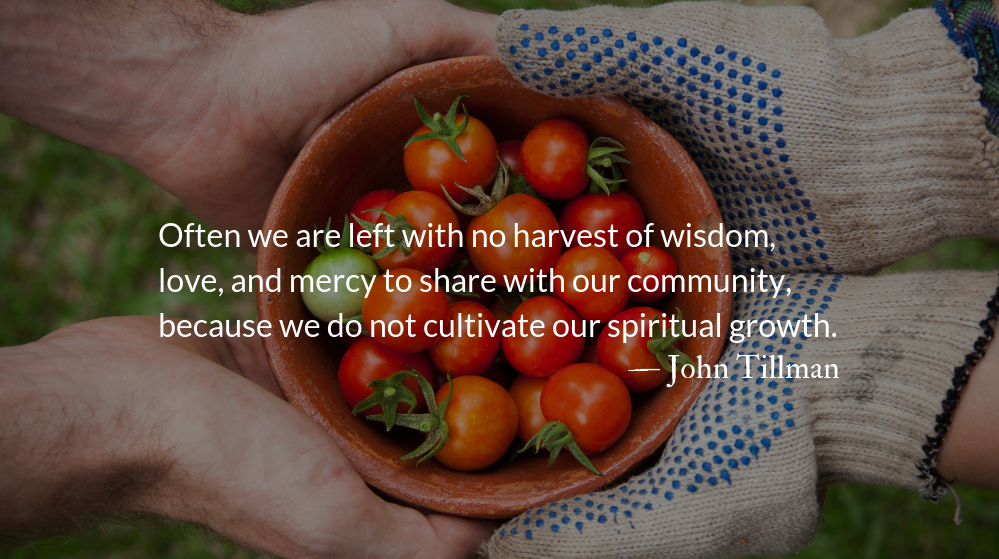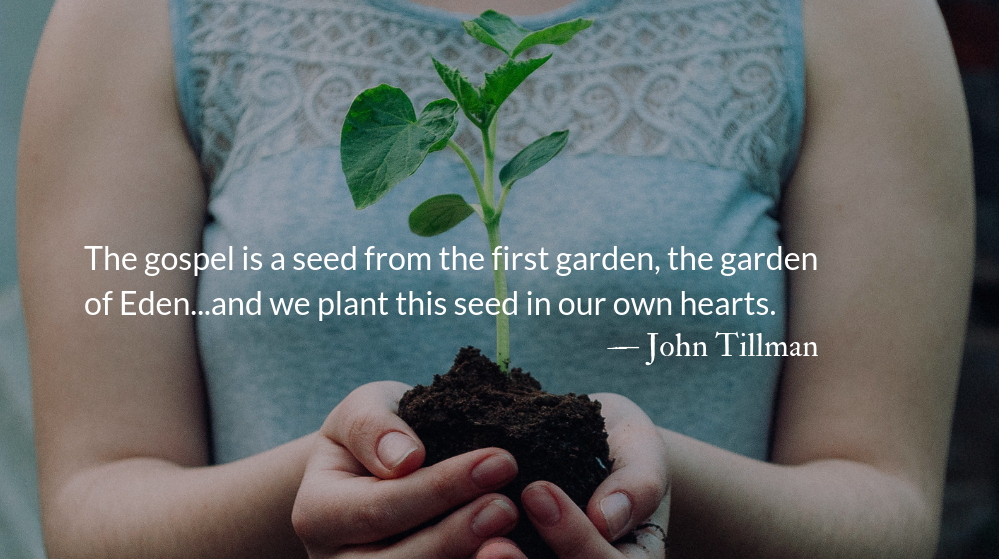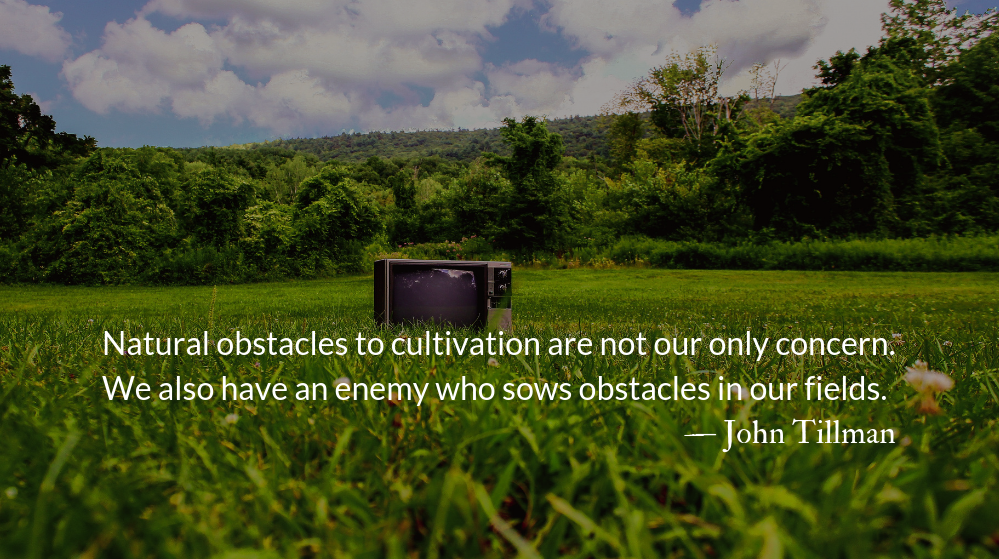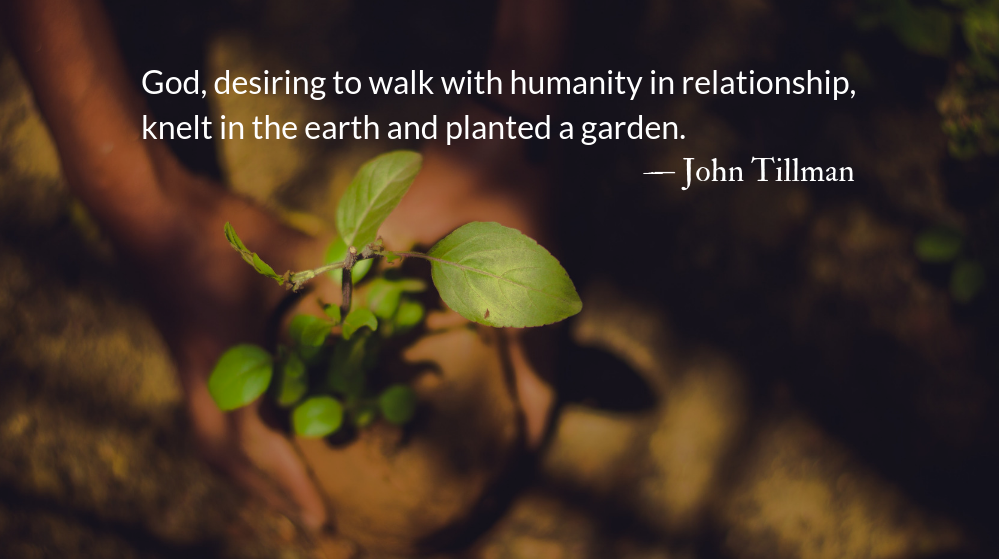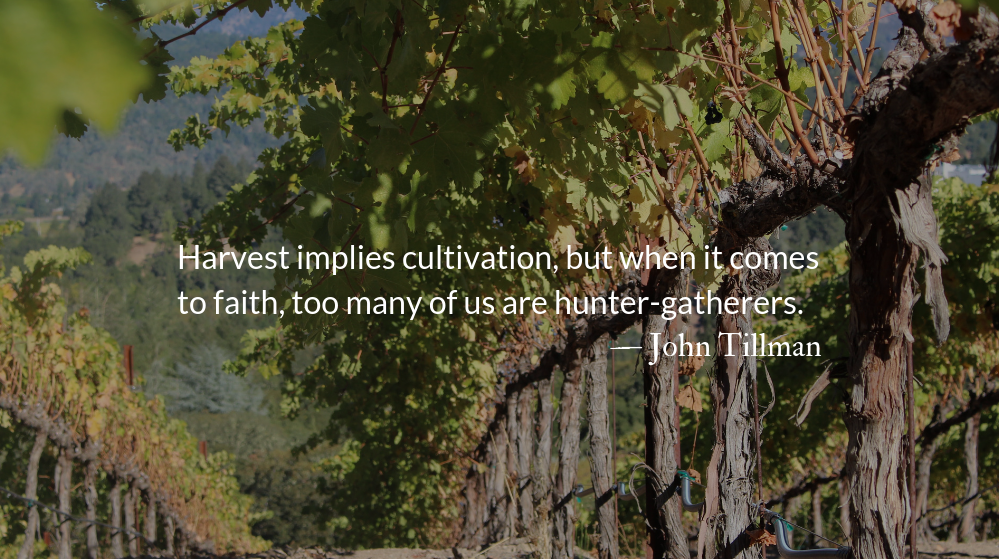Matthew 12.1
At that time Jesus went through the grainfields on the Sabbath. His disciples were hungry and began to pick some heads of grain and eat them.
Reflection: Cultivation Leads to Harvest
By John Tillman
Cultivation leads to harvest. Harvests, when shared, lead to celebration.
In the rural south, I often experienced touches of the generosity harvest brings. In northern Mississippi, you knew when someone’s harvest was in because the produce would show up unannounced at your door. Or sometimes in your kitchen.
I remember coming in from some errand with my Granny to find a bag of fruit on her table that hadn’t been there when we left. A neighbor, coming by while we were out had walked into the unlocked home and left a bag of fruit. My Granny recognized the giver by the gift and set to work baking the fruit in a cobbler to take back to his house. Of course we ate some as well.
The generosity of sharing in the harvest is not a southern or a northern phenomenon. It is a phenomenon that happens within communities where gains and pains are shared.
The fruit of harvest may be literal fruit—the fruit of the vine, the fruit of the grain, the fruit of trees. It may also be the fruit of beauty and peace—of fresh cut flowers from a garden, of sitting in cooling shade, of walking beneath vines whispering with wind, or of crossing a brook whose current waves the cattails at us in greeting.
Scripture has specific guidance for dividing the harvest. Some was to be left in the fields for the poor. A tithe was to be brought to the temple so that those who served the spiritual nourishment of the community could be physically nourished in return. Some was to be given in other sacrifices. Sacrifices for sins. Sacrifices for special requests to the Lord. Sacrifices on behalf of the community and for others. (Anyone teaching that all God wants from us financially is a tithe hasn’t read the Old Testament in depth.)
We are responsible for the care of our communities, spiritually and physically. This requires a financial and a spiritual harvest. We understand, if we don’t always follow, the principle of sharing our financial benefits with others. But often we are left with no harvest of wisdom, love, and mercy to share with our community, because we do not cultivate our spiritual growth.
How are you dividing up your spiritual harvest? To whom are you passing on biblical knowledge? With whom are you exploring the treasures uncovered in God’s Word? How are you supporting those who support your spiritual development?
Prayer: The Refrain for the Morning Lessons
Our sins are stronger than we are, but you will blot them out.. — Psalm 65:3
– Prayer from The Divine Hours: Prayers for Autumn and Wintertime by Phyllis Tickle.
Prayers from The Divine Hours available online and in print.
Today’s Readings
Genesis 12 (Listen – 2:51)
Matthew 11 (Listen – 4:06)
This Weekend’s Readings
Genesis 13 (Listen – 2:16), Matthew 12 (Listen – 6:41)
Genesis 14 (Listen – 4:04), Matthew 13 (Listen – 7:23)
Additional Reading
Read More about Redemption at Work in Generosity
Landowners, the CEOs of Israel’s agrarian society, had a holy responsibility to not wring every grain of profit from their fields—to not harvest the edges and corners of the field, and to not pick up dropped grain or return for forgotten sheaves.
Read More about Good News to the Poor :: Epiphany
When Mary sang about filling the hungry with good things, poverty and many other personal tragedies were considered markers of spiritual failure. Today we also see poverty as a result of sin.
How far will you travel in God’s Word this year?
On January 1st we restarted our two year Bible reading plan in Genesis and the Gospel of Matthew. Join us on the journey. We read the Old Testament over two years and the New Testament and Psalms each year.
Read with us at a sustainable pace. Subscribe and invite friends to join you using this link.
Where will a journey through the Bible take your faith in the coming year? Jesus calls each of us, saying, “Follow me.”


